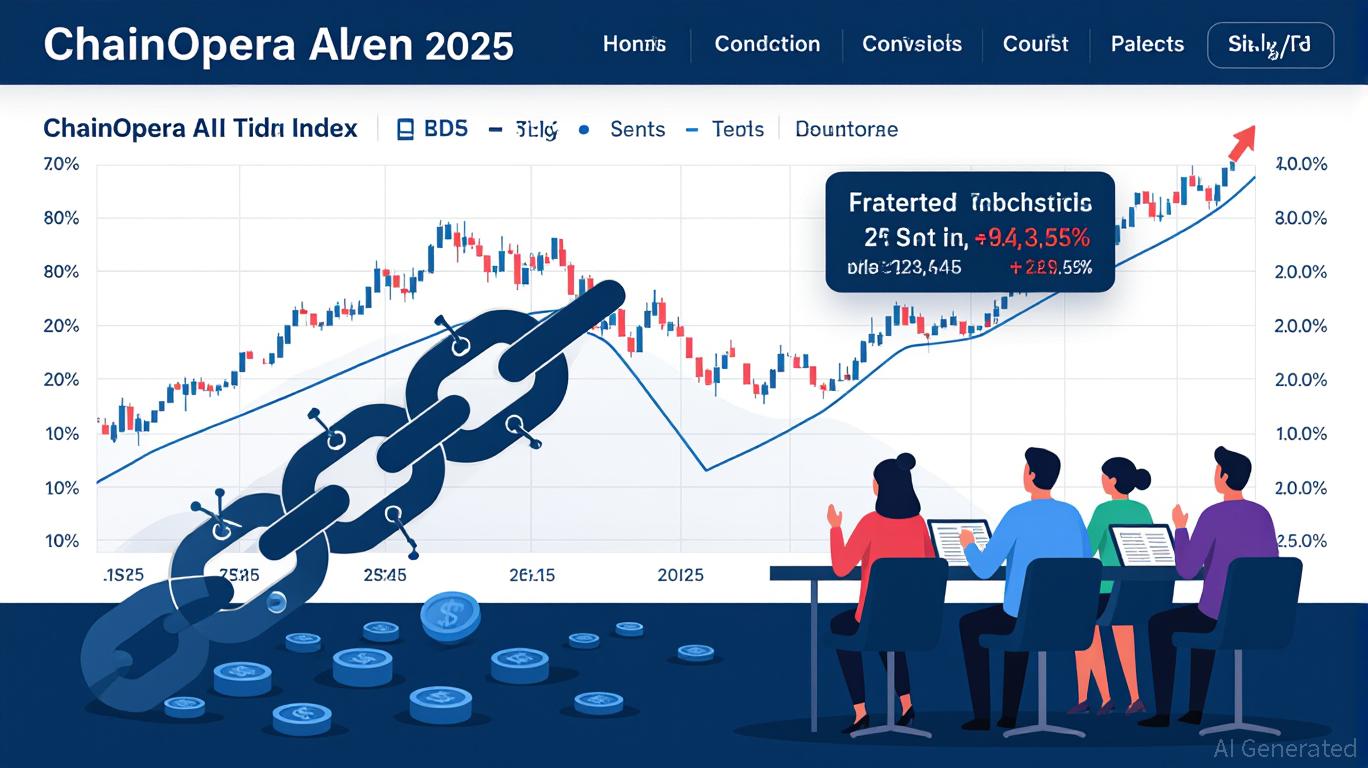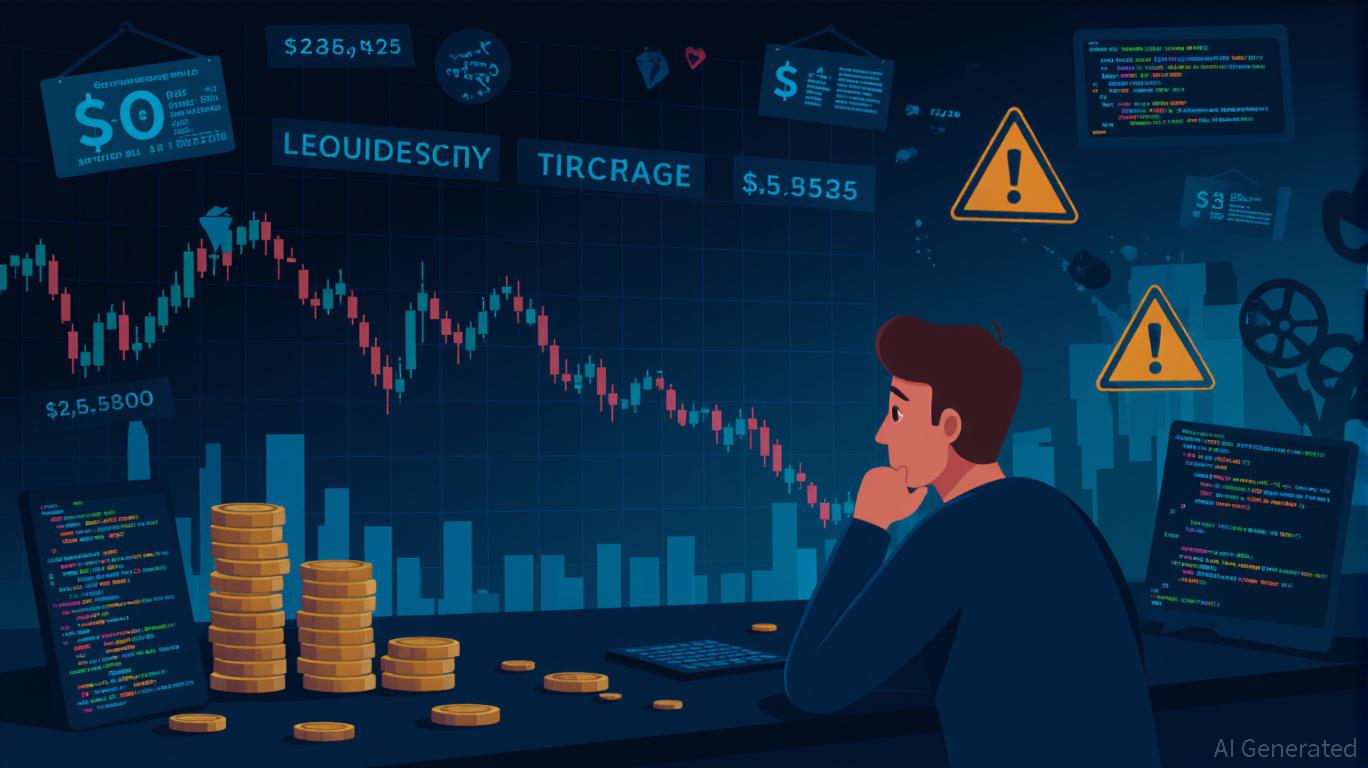Bitcoin News Update: Traditional Banks Struggle to Compete with SoFi's All-in-One Crypto Expansion
- SoFi becomes first U.S. bank to launch integrated crypto trading via its app, offering BTC, ETH, and SOL. - The service uses in-house infrastructure and regulatory compliance, replacing a 2019 Coinbase partnership (suspended in 2023). - Enabled by March 2025 OCC guidance, it aims to attract risk-conscious users with FDIC-insured accounts and a Bitcoin giveaway promotion. - Future plans include a USD-backed stablecoin by 2026 and blockchain remittances, though crypto remains speculative and uninsured.
SoFi Technologies Inc. has set a new precedent as the first U.S. bank with a national charter to introduce built-in cryptocurrency trading, signaling a major step forward in the financial sector’s adoption of digital currencies. The fintech leader revealed on November 11, 2025, that it is launching
This rollout comes after the Office of the Comptroller of the Currency (OCC) issued an interpretive letter in March 2025, clarifying that banks could provide crypto-related services if they meet certain requirements, thus removing a significant regulatory hurdle, according to
SoFi’s solution combines crypto trading with FDIC-insured checking and savings accounts, letting users conduct transactions straight from their bank accounts without needing to move money to outside wallets. Although digital assets themselves are not covered by FDIC insurance, SoFi emphasized its robust security protocols and in-app educational resources to foster trust among users. The company shared that 60% of its digital asset holders prefer managing their crypto through a regulated bank over using exchanges, as

To encourage participation, SoFi introduced a special promotion where early users can enter to win a Bitcoin. Those who join the waitlist by November 30, 2025, open a crypto account, and make three trades of at least $10 each by January 31, 2026, will be eligible for the prize draw, as
This development comes as the number of U.S. crypto holders doubles in 2025, fueled by rising interest in digital assets and a post-election boom in decentralized finance (DeFi). By entering the crypto trading space, SoFi positions itself as a competitor to both traditional banks and crypto-focused platforms, leveraging its regulatory standing to appeal to users who prioritize security, as
---
SoFi Becomes First Nationally Chartered Bank to Launch Integrated Crypto Trading
SoFi Bank Relaunches Crypto Trading as First FDIC-Insured US Bank
SoFi becomes first U.S. national bank to offer crypto trading
SoFi Bank Becomes the First and Only Nationally Chartered Bank to Launch Crypto Trading for Consumers
SoFi Launches Crypto Trading, Citing 'Bank-Level Confidence' as Key Edge
Disclaimer: The content of this article solely reflects the author's opinion and does not represent the platform in any capacity. This article is not intended to serve as a reference for making investment decisions.
You may also like
H-1B Enforcement at Odds with Trump’s Stated Reliance on Overseas Labor
- Trump's administration launched 175 H-1B visa investigations targeting wage fraud and fake work sites to "protect American jobs." - The crackdown contradicts Trump's admission that U.S. industries face critical skills gaps requiring foreign labor in tech and manufacturing. - A South Korean EV battery plant worker raid and corporate critiques highlight tensions between immigration enforcement and labor shortages. - Proposed $2,000 tariff dividends risk inflation while H-1B restrictions test the viability

U.S. Debt Fluctuations Surge Amid AI-Driven Borrowing Growth and Fed Faces Fiscal Uncertainty
- U.S. Debt Volatility Index hits one-month high in November, reflecting market anxiety amid government shutdown resolution and fiscal risks. - AI infrastructure debt surges 112% to $25B in 2025, driven by tech giants’ $75B in bonds for GPU/cloud projects, raising overleveraging concerns. - Fed faces mixed signals: October job losses push December rate cut odds to 68%, while gold/silver rise 2-3% as investors seek safe havens amid fiscal/geopolitical risks. - Delayed economic data from shutdown complicates

ChainOpera AI Token Plunge: An Alert for Investors in AI-Based Cryptocurrencies
- ChainOpera AI Index's 54% 2025 collapse exposed systemic risks in AI-driven crypto assets, driven by governance failures, regulatory ambiguity, and technical vulnerabilities. - C3.ai's leadership turmoil and $116.8M loss triggered sell-offs, while the CLARITY Act's vague jurisdictional framework created legal gray areas for AI-based crypto projects. - Model Context Protocol vulnerabilities surged 270% in Q3 2025, highlighting inadequate governance models as 49% of high-severity AI risks remain undetected

Navigating the Dangers of New Cryptocurrency Tokens: Insights Gained from the COAI Token Fraud
- COAI token's 2025 collapse exposed systemic risks in algorithmic stablecoins, centralized governance, and fragmented regulatory frameworks. - xUSD/deUSD stablecoins lost dollar peg during liquidity crisis, while 87.9% token concentration enabled panic selling and manipulation. - Regulatory gaps pre-collapse allowed COAI to exploit loosely regulated markets, but post-crisis reforms like MiCA and GENIUS Act now demand stricter compliance. - Investor sentiment shifted toward transparency, with demand for re
